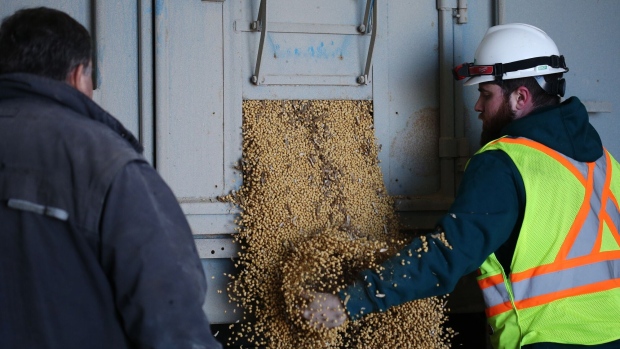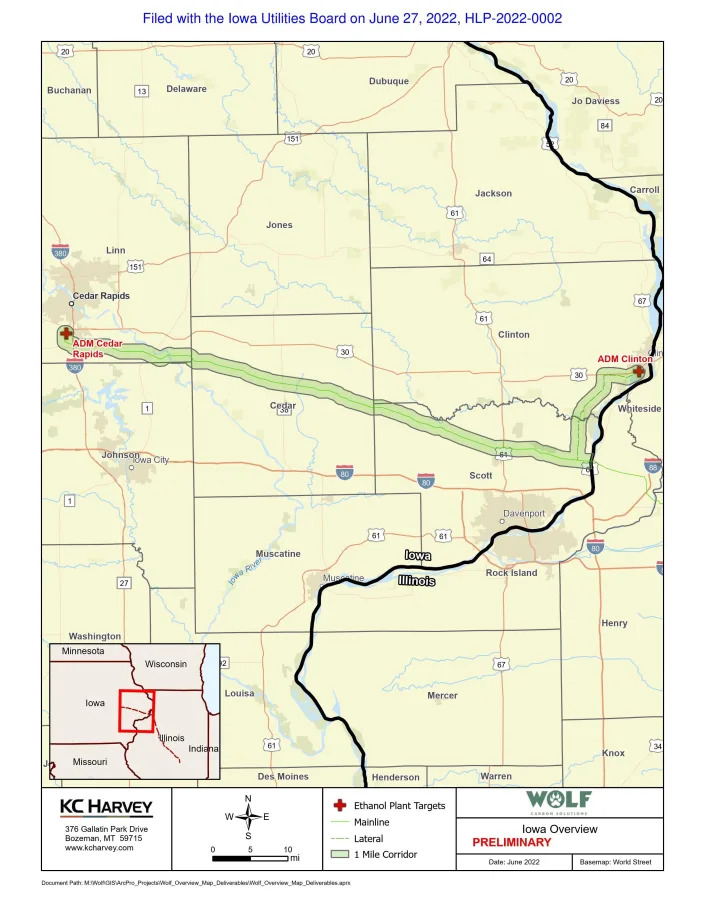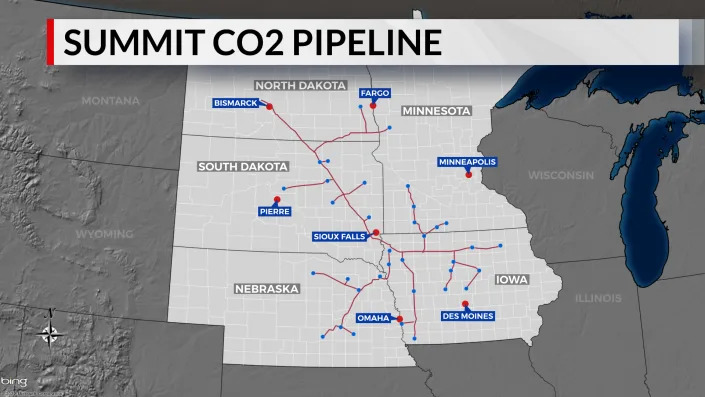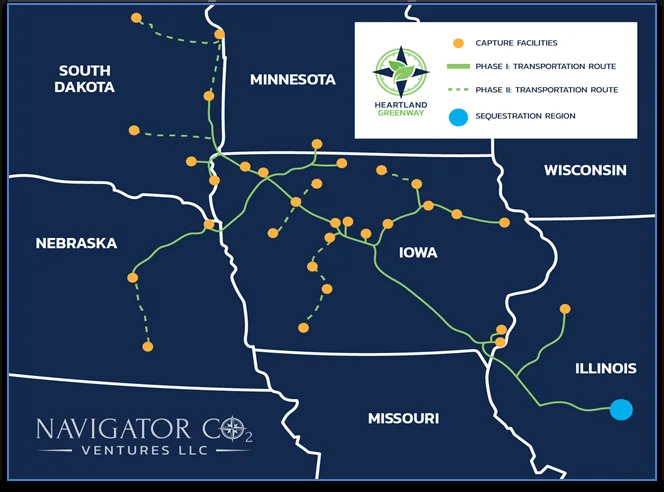Your Daily Bread Will Now Come From Fewer Hands
MONOPOLY CAPITALI$M USING WORKERS CAPITAL
Analysis by Javier Blas | Bloomberg
June 13, 2023
![]() (Source: Bloomberg research and company reports)
(Source: Bloomberg research and company reports)
It hardly generates headlines, but it puts your daily bread on the table.
The grain-trading industry is one of the most inconspicuous — and yet crucial — businesses powering the global economy. And it just witnessed its biggest shakeup in a generation.
Bunge Ltd., a US-based food trader and processor, is buying rival grain trader Viterra, which is controlled by commodity behemoth Glencore Plc and two Canadian pension funds.
The price tag is $8.2 billion in shares and cash, plus debt. When the deal closes, likely in 2024, Bunge’s shareholders would control about two-thirds of the company, and Glencore and the Canadians the rest.
The resulting entity would become the world’s second-largest agricultural trading company by revenue, dominating the soybean and wheat markets. It’s a consolidation that should concern antitrust regulators — and worry anyone who eats or farms.
For the last quarter of a century, four companies have largely controlled the agricultural market. The quartet comprises Archer-Daniels-Midland Co., Bunge, Cargill Inc., and Louis Dreyfus Co. — or “ABCD” for short.
Now the “B” is getting a lot larger, overtaking the “A”, and only trailing the “C”; the concentration has boosted margins, particularly in the last couple of years, when record earnings were the norm.
Cargill became the king of agricultural commodities by buying another “C,” in this case the grain-trading business of Continental Grain Co. in 1998 for about $450 million, plus inventories and debt.
It was the last big industry shakeup and one that prompted regulatory scrutiny. Ultimately, the US Department of Justice forced Cargill to sell some assets, arguing that without the remedy, “many American farmers likely will receive lower prices for their grain and oilseed crops, including corn, soybeans, and wheat.”
Antitrust regulators should take a similarly aggressive approach 25 years later.
Crucially, the Bunge-Viterra merger isn’t just two companies getting together, but, in reality, four of them. That’s because Viterra is the product of an M&A race that started in 2012 when Glencore bought the original Viterra for about $6 billion.
Soon after, in 2016, Glencore spun off the enlarged business, attracting two Canadian pension funds that took almost half of the shares. The new entity kept the Viterra name and bought US-based trader Gavilon in 2022 for about $1.1 billion.
Together, Bunge plus Glencore-Viterra-Gavilon would have had revenue of about $140 billion last year, above the $102 billion of Archer-Daniels-Midland, and just under Cargill’s $165 billion.
Adjusted net income would have been around $3 billion, and underlying earnings, excluding interests, taxes and depreciation, would have come in close to $5.5 billion.
Bunge and Viterra claim that their geographical footprint is complementary, with little overlap. That’s technically true, but only if regulators consider, for example, the US and Canada as separate markets, or that Argentina and Brazil have little in common.
I doubt regulators would take such approach.
“We’ll have to file in a number of jurisdictions, because of the footprint of both companies. I will never predict regulatory timelines,” Greg Heckman, Bunge’s chief executive officer, told shareholders in a conference call after the deal announcement. “We will see how it plays out.”
Both Bunge and Viterra are important for China, and Beijing will also likely take a hard look at the deal. China is trying to expand its own state-controlled global grain trader.
It isn’t just horizontal consolidation, over geography, but also vertical, up and down the supply chain. Bunge is more weighed toward processing, and Viterra towards trading.
Together, they would control a larger share of the path from farm to fork.
Farmers and the food companies that are the clients of the traders would all have significantly less choice going forward.
The Bunge-Viterra deal makes sense from a business perspective, even if the former is buying the latter at the top of the cycle. But it requires robust due diligence from regulators.
Last year, the International Monetary Fund described the commodity-trading industry as one of those “corners of global financial markets that were little known by the broader public.”
That should not be the case.
This column does not necessarily reflect the opinion of the editorial board or Bloomberg LP and its owners.
Javier Blas is a Bloomberg Opinion columnist covering energy and commodities. A former reporter for Bloomberg News and commodities editor at the Financial Times, he is coauthor of “The World for Sale: Money, Power and the Traders Who Barter the Earth’s Resources.”
CPP Investments to Acquire 12% Position in Bunge through Viterra Merger

NEWS PROVIDED BYCanada Pension Plan Investment Board
13 Jun, 2023, 06:35 ET
CPP Investments holds a 40% equity stake in Viterra
TORONTO, June 13, 2023 /CNW/ - Canada Pension Plan Investment Board (CPP Investments) today announced it has signed a definitive agreement in support of the proposed merger between Viterra and Bunge (NYSE: BG), an agriculture, commodities and food company. Through this transaction, CPP Investments will receive an approximate 12% equity position in the combined company and US$0.8 billion in cash upon the close of the transaction. CPP Investments has held a 40% investment in Viterra since 2016.
Bunge is a leader in oilseed processing and a significant global producer and supplier of specialty plant-based oils and fats. Viterra is a leading, global agriculture network, which connects producers to consumers with sustainable, traceable, and quality-controlled agricultural products. Together, the agribusinesses have highly complementary capabilities and footprints, and together will be able to better serve customers from an enhanced global network and increased diversification across geographies, seasonal cycles and crops.
Glencore and British Columbia Investment Management Corporation, who jointly own the other 60% of Viterra, will also become shareholders of Bunge.
"Since 2016, CPP Investments has supported Viterra on its journey to becoming a leading global agriculture business. We are pleased to support the business in its next phase of growth through this merger with Bunge," said Bruce Hogg, Managing Director, Head of Sustainable Energies, CPP Investments. "Combining these two highly complementary companies will create an enhanced agribusiness that can provide an expanded product offering to end-customers, with an increased ability to innovate and promote sustainable practices in the global food supply."
The transaction is expected to close in mid-2024, subject to the satisfaction of customary closing conditions, including receipt of regulatory approvals and approval by Bunge shareholders.
The Sustainable Energies group pursues investments in renewable and conventional energy, carbon capture, distributed and energy services, emerging and disruptive technologies, as well as agriculture. As at March 31, 2023, the Sustainable Energies group portfolio totalled C$32 billion in net assets.
About CPP Investments
Canada Pension Plan Investment Board (CPP Investments™) is a professional investment management organization that manages the Fund in the best interest of the more than 21 million contributors and beneficiaries of the Canada Pension Plan. In order to build diversified portfolios of assets, investments are made around the world in public equities, private equities, real estate, infrastructure and fixed income. Headquartered in Toronto, with offices in Hong Kong, London, Luxembourg, Mumbai, New York City, San Francisco, São Paulo and Sydney, CPP Investments is governed and managed independently of the Canada Pension Plan and at arm's length from governments. At March 31, 2023, the Fund totalled $570 billion. For more information, please visit www.cppinvestments.com or follow us on LinkedIn, Facebook or Twitter.
Viterra-Bunge Merger Proposal Backed by Canadian Pension Funds
Paula Sambo, Bloomberg News

Workers unload soybeans at a Viterra grain elevator near Rosser, Manitoba, Canada, on Friday, March, 18, 2022. The United Nations warned that already record global food costs could surge another 22% as the war in Ukraine stifles trade and slashes future harvests. , Bloomberg
(Bloomberg) -- A merger between Glencore Plc’s Viterra unit and Bunge Ltd. to create a $25 billion agricultural trading behemoth has the support of two of Canada’s biggest pension funds, according to a person with direct knowledge of the matter.
Canada Pension Plan Investment Board and British Columbia Investment Management Corp. are willing to swap their combined 49.98% stake in Viterra for investments in the merged entity, said the person who asked not to be named discussing a private deal.
Spokespersons for the two pension fund managers and Viterra declined to comment.
A merger would create a trader big enough to take on the industry’s elite: Cargill Inc. and Archer-Daniels-Midland Co. Viterra and Bunge are negotiating the structure of a potential transaction, Bloomberg reported last week. One option being discussed envisions a stock deal where Bunge shareholders would own a majority of the combined group, according to the people.
Read More: Bunge-Viterra Deal Would Create $25 Billion Rival to Cargill
Glencore has flirted with the idea of a deal with Bunge on and off for years, and there’s no certainty it will be able to reach an agreement this time around. In 2017, the Swiss commodities giant approached Bunge about a friendly takeover, but was publicly rebuffed by the US firm. Since then, Bunge has replaced its new chief executive officer and other senior executives.
Canada’s Globe and Mail newspaper reported Monday that the Canadian pension funds would almost certainly swap their stakes for a stake in Bunge, citing people close to deal talks. Glencore Plc, with a 49.99% stake, would do the same, the newspaper reported.
--With assistance from Isis Almeida and Layan Odeh.
(Updates with background details in fourth paragraph)
©2023 Bloomberg L.P.
From Wikipedia, the free encyclopedia
Viterra began as a Canadian grain handling business, the nation's largest grain handler, with its historic formative roots in prairie grain-handling cooperatives, among them the iconic Saskatchewan Wheat Pool.[1] Viterra Inc grew into a global agri-business with operations in Canada, the United States, Australia, New Zealand and China. Viterra operated three distinct, inter-related businesses: Grain Handling & Marketing, Agri-Products and Processing, enabling it to generate earnings at various points on the food production chain from field to the table. Following its $6.1-billion acquisition by Glencore International, on 1 January 2013, Viterra was merged with Glencore purchaser, 8115222 Canada Inc.,[1] headquartered in Rotterdam, the Netherlands.
Viterra's grain handling and marketing operations were located primarily in two of the world's most fertile regions: Western Canada and South Australia. The company owns and operates grain terminals in Western Canada, along with 95% of the grain handling and storage facilities in South Australia. The company ships grain to markets worldwide.[2]
Viterra was also one of the largest agri-product retailers in Canada, with a network of more than 250 retail locations throughout the Prairies. As part of this business, Viterra owned a 34% interest in Canadian Fertilizer Limited CFI, a large urea and ammonia plant.
The company also operated several value-added processing businesses, including wholly owned subsidiaries like Dakota Growers Pasta Company, 21st Century Grain, making it the largest producer of industrial oats in North America, the third largest producer of pasta on the continent, the largest malt producer in Australia, a large producer of canola and a leading producer of animal feed in New Zealand.
At the time of the Glencore's March 2012, back-to-back purchase-and-agreement of Viterra's assets to Agrium, which paved the way for Glencore's purchase of Viterra, in December 2012, Viterra was generating "$2.4-billion in revenue and $244-million in EBITDA" and operated a "network of 258 agri-products retail locations throughout Western Canada and 17 retail locations in Australia. Retail locations offer fertilizer, crop protection products, seed and equipment to growers. Viterra also has a minority interest in a nitrogen fertilizer manufacturing plant in Medicine Hat, Alberta."[3]
History[edit]
Viterra Inc. was formed in 2007 as a publicly traded corporation when the Saskatchewan Wheat Pool acquired Agricore United, which was at that time the largest grain handler in Western Canada. Viterra's predecessors were the grain-trading co-operatives set up in Canada during the 1920s known as the wheat pools. It has since acquired the former Australian government-sponsored monopsony marketing board, the Australian Barley Board, created in 1939.
Mergers

Viterra building near Fort Road in Edmonton, Alberta.
On 19 May 2009, Viterra announced it would buy Australian ABB Grain for C$1.4 billion.[4] On 9 September, 84 percent of ABB shareholders voted in favour of the merger, with 75 percent required to pass the resolution.[5]
On March 15, 2012, Viterra announced that it had received takeover offers from multiple parties.[6] Glencore was revealed to have offered a takeover bid of $6.1 billion.[7] It intended to immediately sell off its Canadian assets to Agrium and Richardson International while retaining Viterra's overseas assets.[8] The takeover deal was completed in December 2012.[9]
Following Glencore's takeover of Viterra in December 2012, Viterra underwent some major changes. Viterra Inc. (Viterra) was acquired by a Glencore purchaser, 8115222 Canada Inc. and merged under the Canada Business Corporations Act (CBCA). The new board of directors includes Mr. Chris Mahoney (Director of Agricultural Products of Glencore), Mr. Ernest Mostert (Financial Manager of Glencore Grain), Mr. Robert Wardell and Mr. Larry Ruud (President & CEO One Earth Farms Corp).[10]
In preparation for Glencore's acquisition of Viterra in December 2012, in March 2012, Agrium Inc entered into a $1.15bn sale agreement with Glencore, who in this way divested "90 percent of Viterra’s Canadian retail facilities, all of its Australian retail facilities, as well as their minority position in a nitrogen facility located in Medicine Hat, Alberta."[3]
In 2016, Glencore sold a minority stake in the business to the Canada Pension Plan, who paid "US$2.5 billion for a 40 percent stake" in its global agricultural assets, by then renamed "Glencore Agriculture".[11]
In 2020, Glencore Agriculture rebranded to Viterra and created a new brand identity, building off the Viterra brand that was created in 2007.[12]
In 2022, Gavilon was purchased by Viterra for $1.1 billion. It is expected Gavilon will be fulling integrated in Viterra by early 2023.[13]
In 2023, a merger with Bunge Limited was announced.[14]






